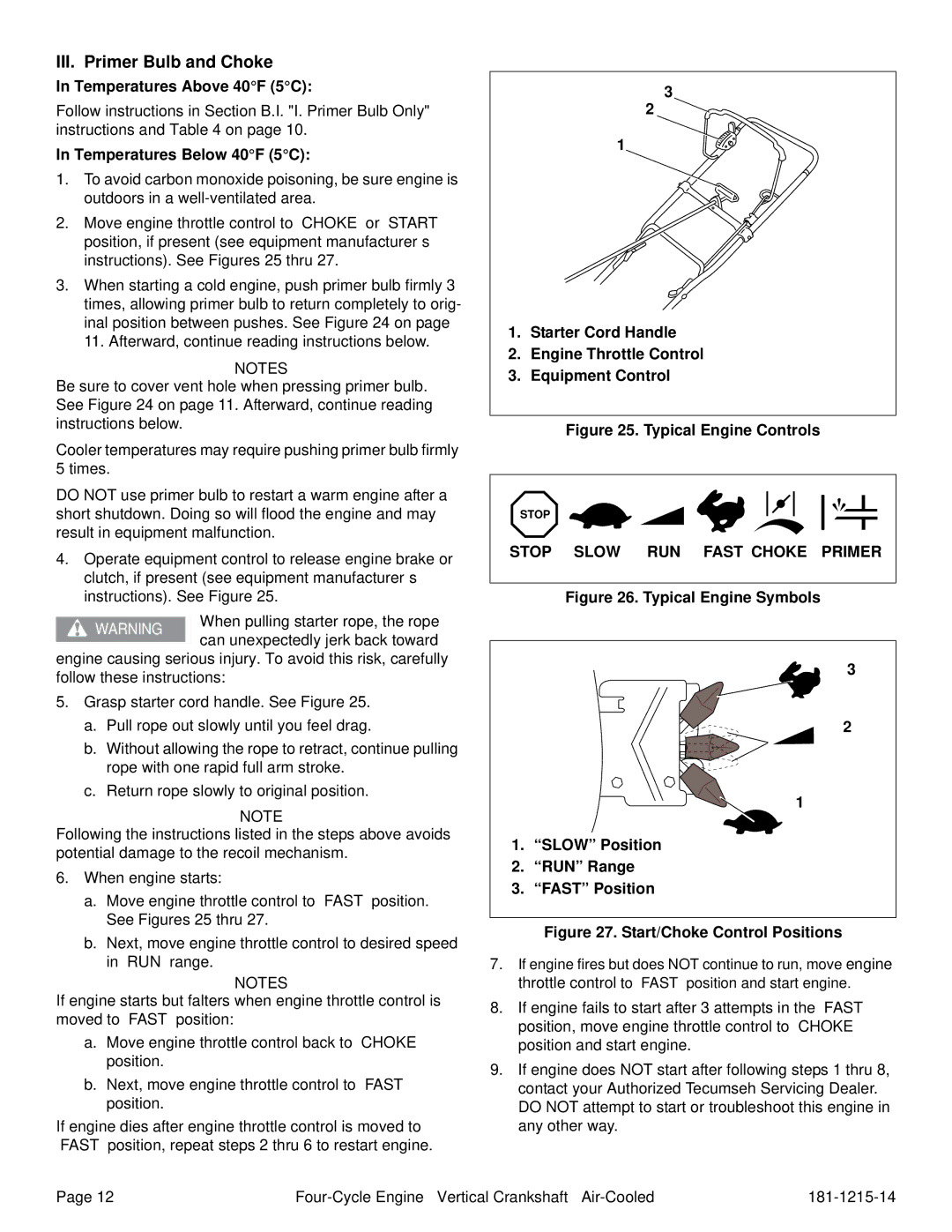LV195EA, LV156EA, LV156XA, LV195XA specifications
Tecumseh is a well-known player in the field of small engines, and their LV series, including the LV156EA, LV156XA, LV195EA, and LV195XA, showcases their commitment to innovation and reliability. Designed for various applications, these engines are favored in lawn care equipment, utility vehicles, and more.The LV156EA and LV156XA models feature a robust design, emphasizing durability and ease of use. They are powered by a 4-cycle, single-cylinder layout, which balances power and efficiency. Equipped with an electronic ignition system, these engines ensure quick starts and reliable operation in diverse conditions. The LV156 series typically has a displacement of approximately 156cc, which delivers a commendable power output suitable for light to medium-duty tasks.
On the other hand, the LV195XA and LV195EA models elevate the performance bar with a larger displacement of around 195cc. This additional capacity translates to higher torque and increased power output, making them ideal for more demanding operations. Both models also feature a heavy-duty crankshaft and a cast-iron cylinder liner, ensuring prolonged engine life and superior wear resistance.
A standout feature across the LV series is Tecumseh’s commitment to low emissions and fuel efficiency. The engines integrate advanced combustion technology, optimizing fuel mix for cleaner combustion. This is particularly beneficial for commercial users, as reduced emissions can help meet stringent environmental regulations.
Moreover, Tecumseh's LV series incorporates user-friendly design elements such as an integrated recoil starter and easy-access oil fill, streamlining maintenance tasks. The lightweight construction aids in portability while providing stability during operation.
Overall, the LV156EA, LV156XA, LV195EA, and LV195XA engines from Tecumseh exemplify a blend of innovative technology, robust performance, and environmental responsibility, making them reliable choices for various applications in the small engine market. Whether for residential, commercial, or industrial use, these engines showcase Tecumseh's dedication to quality and performance in the small engine segment.

